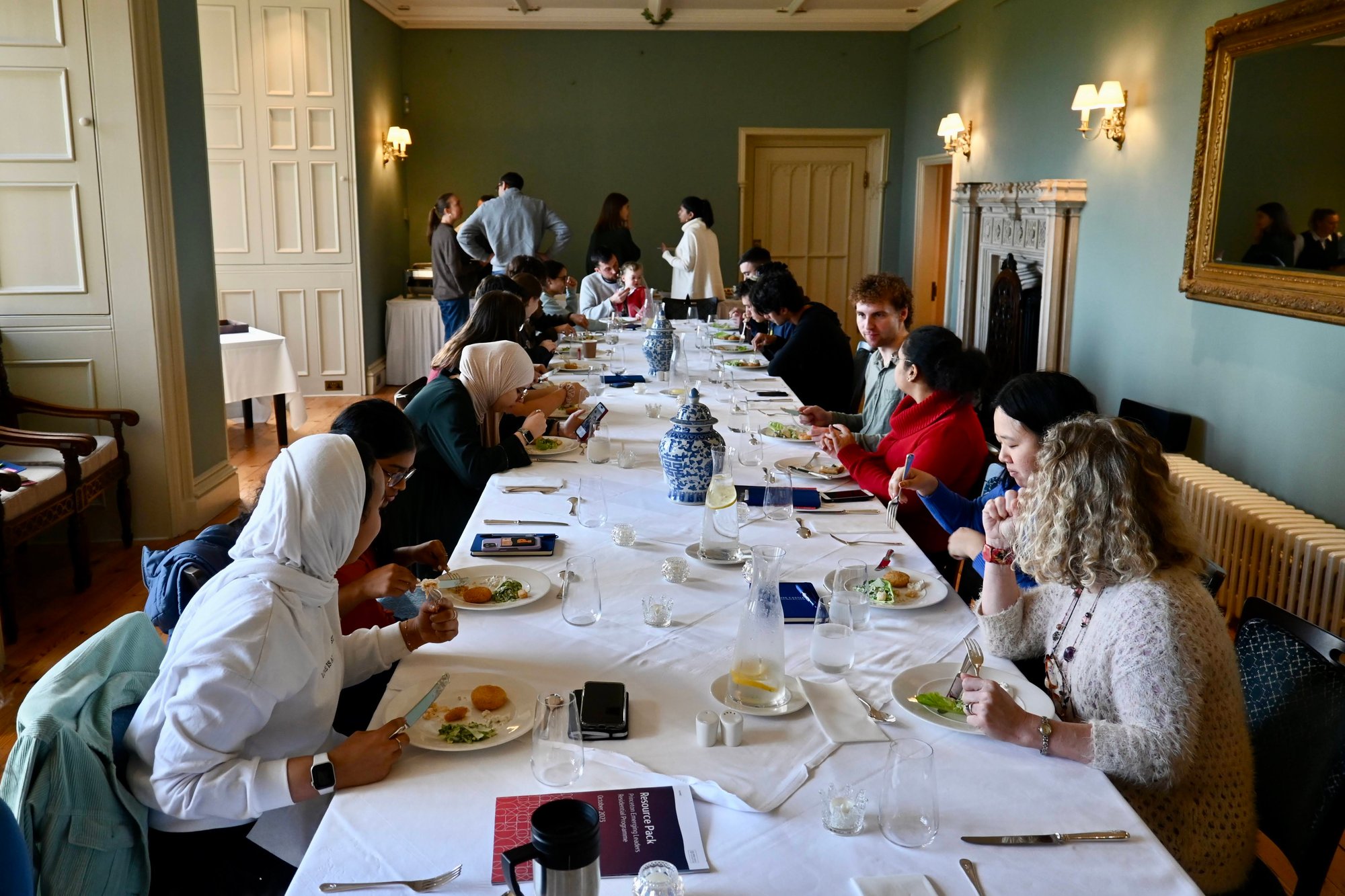The Rose Way
Our approach to peace and reconciliation
We equip faith-formed leaders with the skills, tools and habits to cross societal divides.
In a world fractured by deep divides, The Rose Way offers a distinctive approach to peace and reconciliation. At its heart, the Rose Way is a journey — from conflict to reconciliation, from fear to trust, from division to mutual flourishing.
What makes the Rose Way different?
Faith and difference are often seen or experienced as the problem, not the solution. The Rose Way offers a framework to harness their huge, untapped potential for transforming conflict and building a deeper, more resilient peace.
Unlike some approaches, the Rose Way invests in the character formation of the peacebuilder, rather than focusing solely on peace and reconciliation processes.
Our programmes and resources support leaders to harness the wisdom embodied in their faith traditions to cross deep divides, rehumanise each other, and model a better quality of disagreement – one in which our differences still matter.
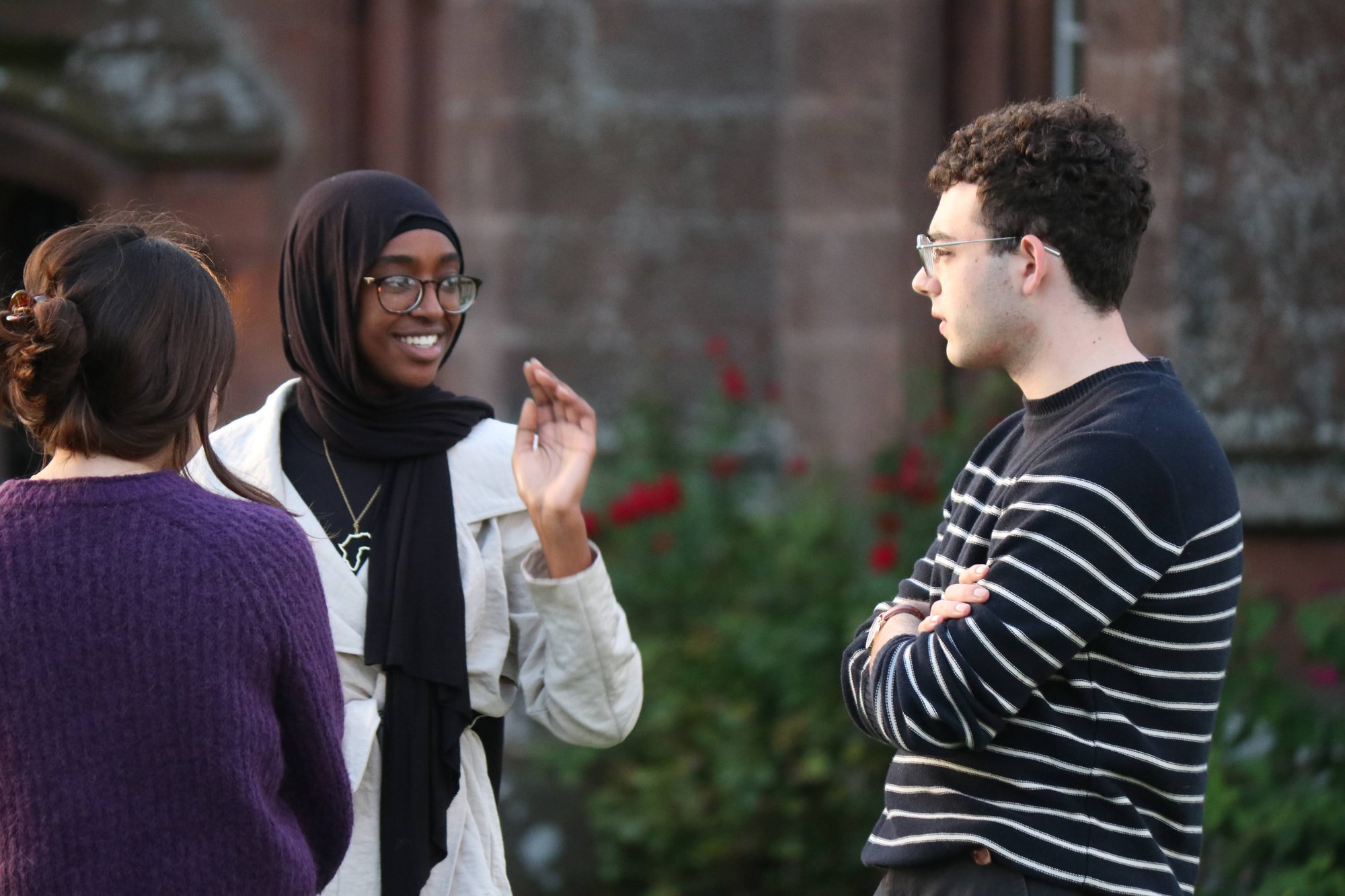
Three core pillars
Conflict Transformation Skills
We value the kind of disagreement that doesn’t demand resolution, but invites us to listen with curiosity, speak with integrity, and stay grounded when tensions rise. We offer leaders a carefully facilitated space to learn and rehearse the practical conflict transformation skills – including facilitation, mediation, and non-violent communication – needed to hold difficult conversations and sustain healthy relationships across deep differences of identity, belief and culture.
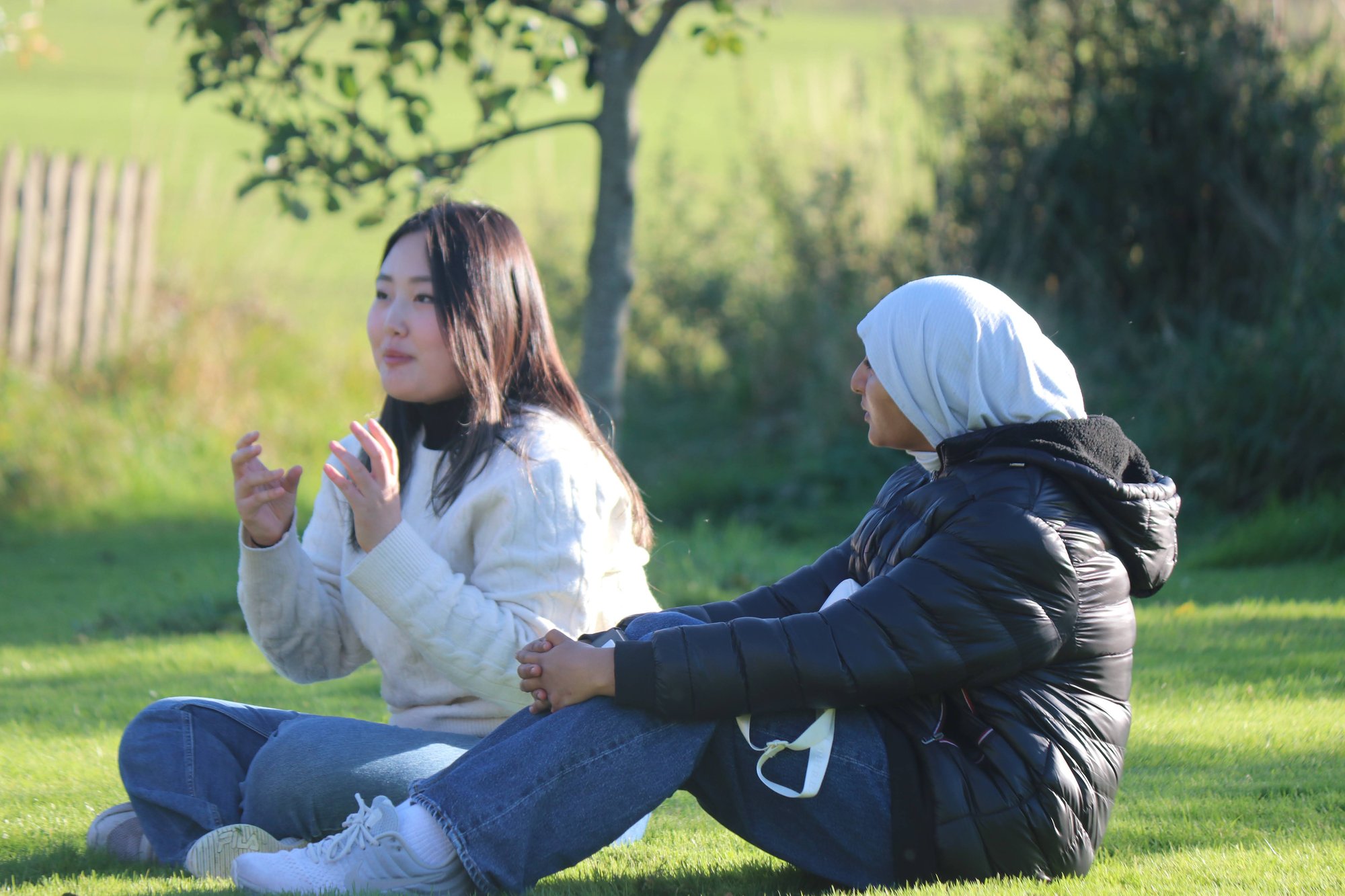
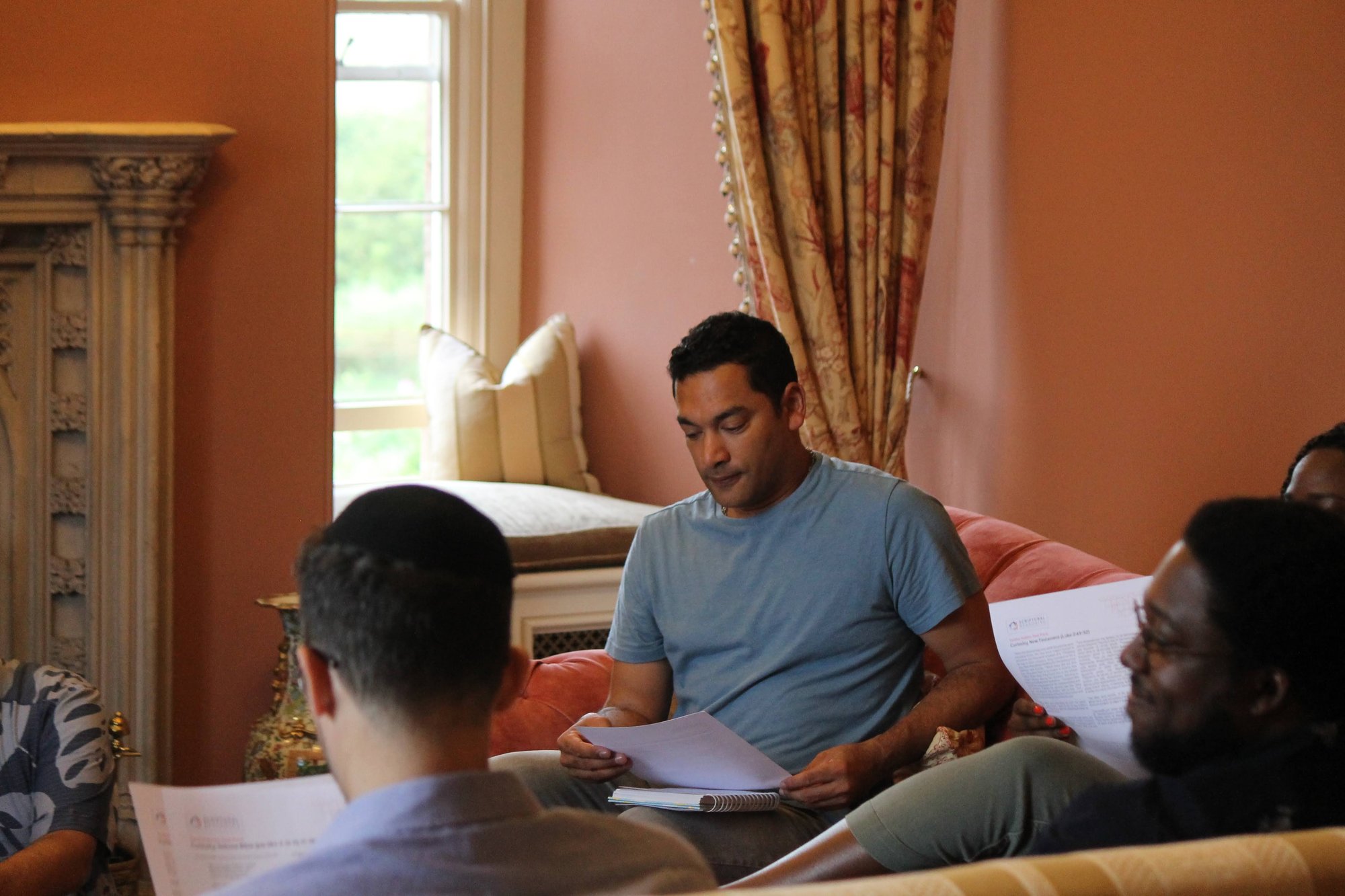
Scriptural Reasoning
Many of our emerging leaders are formed by a sacred text tradition which frames their belief and action today. We do not ask them to leave this at the door – rather to engage it in their dialogue and action with others. Scriptural Reasoning (SR) is a practice for inter-faith dialogue that places scripture and the dignity of difference at the heart of the conversation. It is not about seeking agreement, or winning a debate, but rather exploring our deepest beliefs and commitments across faith boundaries, and learning to disagree better.
12 Habits of Reconcilers
At the heart of the Rose Way are the 12 Habits of Reconcilers: characteristics and practices grounded in the wisdom of the Abrahamic faith traditions, shaped through scripture and spiritual practice, and observed in extraordinary people of peace. They include Lament, Hospitality, Humility, Empathy, and Curiosity.
The Habits provide an endlessly versatile framework for engaging in incisive inward reflection as well as entering into meaningful relationship with others. They offer an accessible framework with which to name, describe and attend to the patterns of conflict and peace that shape our lives and our communities. The 12 Habits invite leaders to embark on a life-long journey towards reconciliation and peace.
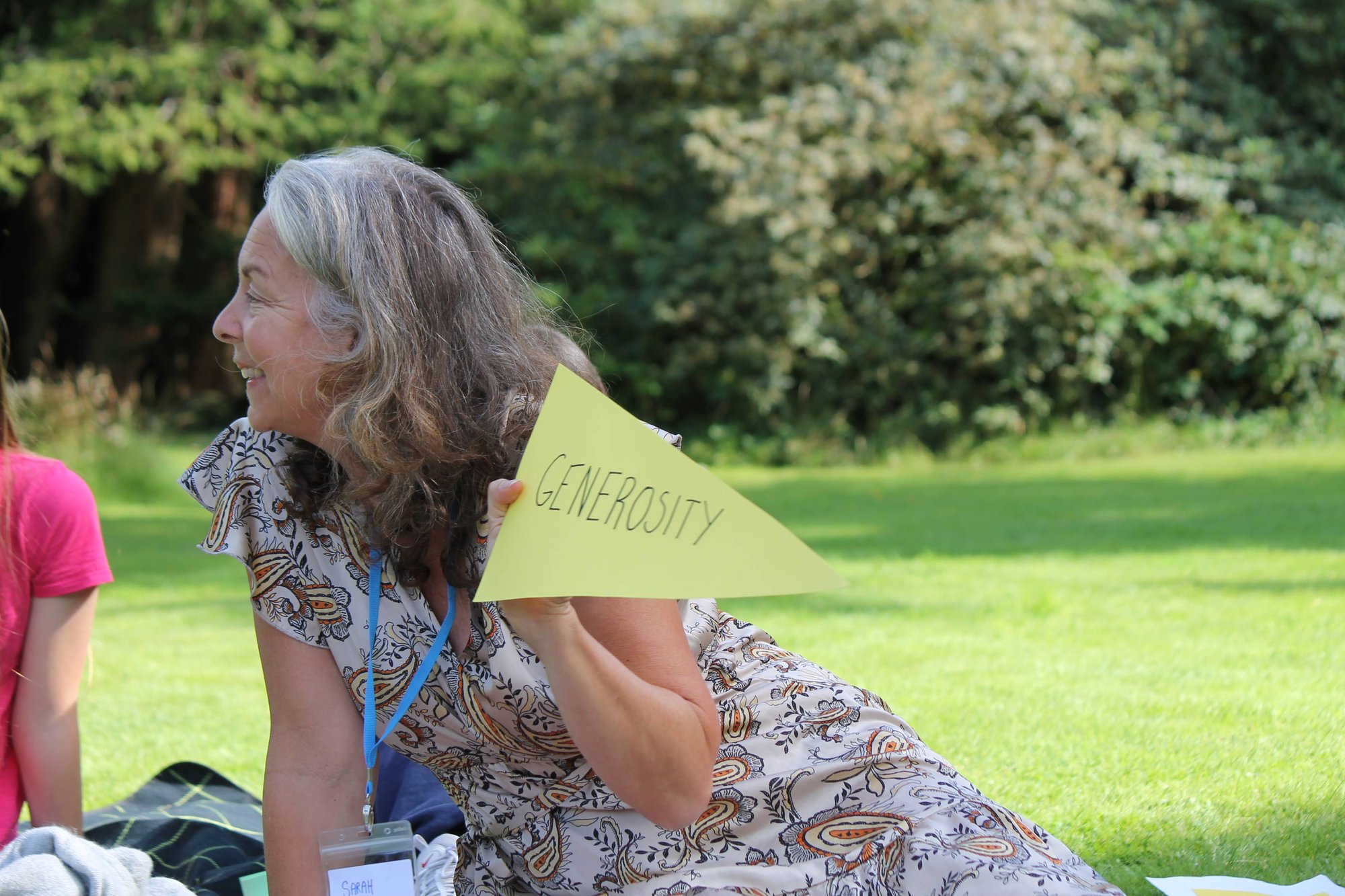
The 'three Rs of reconciliation'
Re-membering
Seeking out what has been forgotten or broken, telling our stories and attending to the wounds that deepen conflict and despair.
Re-humanising
Seeing and hearing those on the other side of the walls we build, and recognising the dignity of those who are different from us.
Re-imagining
Envisioning new relationships, systems, and cultures of peace where everyone can flourish.
Programmes
Learning through encounter
At Rose Castle and around the world, participants live and learn together — sharing meals, studying, and sharing their stories across divides.
Our Encounter programmes are immersive experiences of reconciliation, supported by skilled facilitators who model what it means to live out the Rose Way. They guide groups on a journey towards healing what is broken, between each other, within themselves, with God, and with their wider environment. They support them in building trust across divides, and reimagining their role as collaborative reconcilers in a shared future.
While every programme is uniquely designed to meet the needs of our partners, they all draw on the three pillars of the Rose Way to allow participants to experience the ‘Three Rs of Reconciliation': re-member (the past), re-humanise (the present) and re-imagine (the future).
